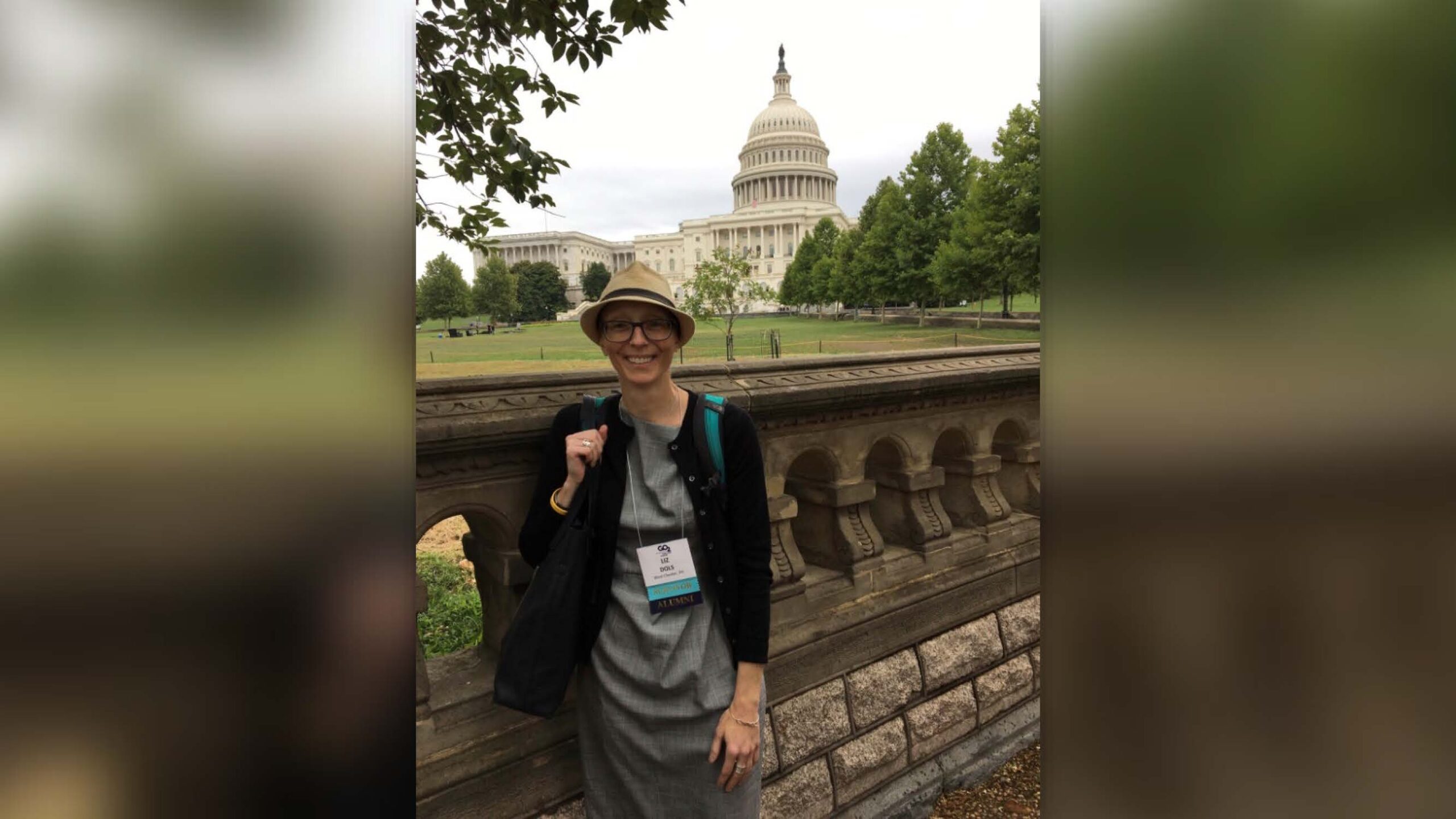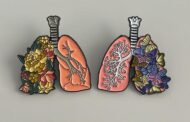Every meeting begins with sharing your story. In summary, this is mine:
My name is Liz, and I’m one of your constituents. I was diagnosed with lung cancer 15 years ago. During those 15 years, I have been on some sort of treatment for my disease all but 8 months. I am a direct beneficiary of lung cancer research, having participated in two successful clinical trials. I am here today on behalf of my family, friends, doctors, and nurses, as well as friends I have lost, to ask for your support for …
From meeting to meeting the initial story might change a little bit, or get shorter if there is not enough time or longer if someone asks a question, but it is always emotional. Living with lung cancer as a chronic disease is an unpredictable adventure, one with the highest highs and lowest lows.
In the United States, the national government funds a large proportion of all cancer research. Of the three branches of our federal government, the legislative branch—the Senate and the House of Representatives—controls the majority of spending and budget allotments. As a patient advocate, you are there to share a brief history of the “why”—why you are in that seat in that conference room or why you and your colleagues are crammed into a tiny office or huddled in a hallway, and why it is important for those assembled to listen to what you have to say during the next 15–30 minutes.
Initially, patient advocacy felt daunting to me. There was a lot to learn, from the names of other advocates to a myriad of abbreviations and acronyms for resolutions, budgets, and government agencies—not to mention how to navigate Capitol Hill and get from meetings in Senate office buildings and House office buildings and back in 45 minutes. There is the request, or “ask”: two or three bullet points distributed by the organization you are representing, which you must shorten into a 1- or 2-minute “elevator speech,” as needed, to make sure your talking points are heard and noted. One additional insight from veteran advocates helped me a great deal during my first meetings with policy makers: They are here to work for us. And it turns out that so many people we have talked to in our advocacy meetings have their own cancer story as a survivor, as a caregiver, or as a friend or an acquaintance of someone with cancer.
In 2016, I made my first two trips as a Livestrong Foundation advocate, to Washington, D.C., and participated with One Voice Against Cancer and the Rally for Medical Research. A full day had been devoted to training and getting to know advocates from other organizations, and learning about the “asks” we would be making of our U.S. senators and representatives (or as it almost always turns out, their legislative aides or other staff members). For example, we might be asking for a specific percentage increase in the coming year’s budget to fund the National Institutes of Health, and from that larger budget, increased funding for the National Cancer Institute.
In 2017, I joined the GO2 Foundation as a patient advocate. Having advocated for the broader cancer community, it was time for me to combine my voice with others from the lung cancer community. Specifically, I wanted to amplify the need for increased funding for lung cancer research. I learned about the Congressionally Directed Medical Research Programs, which fall within the U.S. Department of Defense’s annual budget. As a lung cancer patient advocate, an ask that is important to me includes an increase to the coming year’s Lung Cancer Research Program.
In 2020 and 2021, the trips to Washington, D.C., were sidelined because of COVID-19, but not cancelled. The GO2 Foundation was able to hold virtual “Hill Days” online. Our asks, though advocated remotely, were just as important as ever.
I no longer feel nervous when preparing for advocacy days; quite the opposite. I feel energized by my advocacy colleagues and the combined power of our experiences, and I leave every meeting a more informed patient. My advocacy work has taught me the complicated grant application timeline as well as the importance of fully funding grants for lung cancer research year after year, in order to give other patients with lung cancer the potential to live longer and healthier lives after diagnosis. I encourage anyone interested to find their voice, share their stories, and become a lung cancer patient advocate. We are a community worth fighting for.






